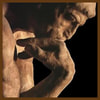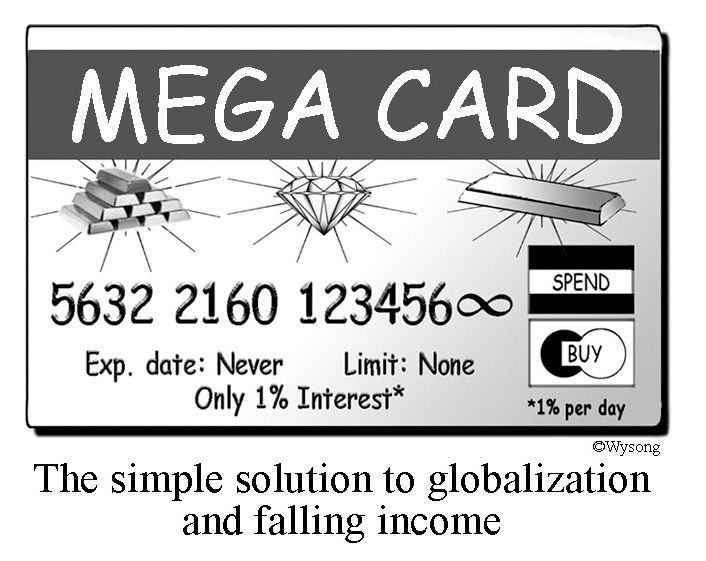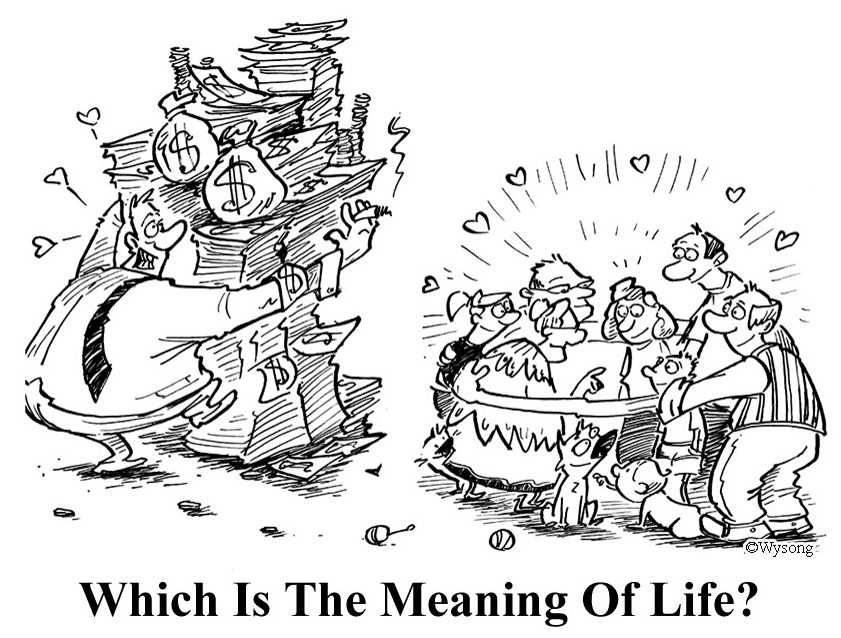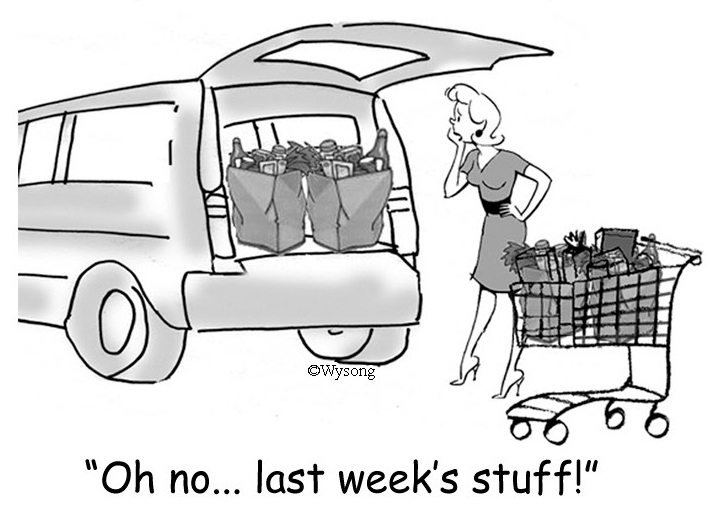Words of wisdom and miscellaneous facts by Dr. Wysong and others.
This is an accumulation over several decades and the accuracy cannot be attested to.
Wysong vs Nemos Bible Debate
COSMOLOGY LIES AS BIG AS THE UNIVERSE
⬇️ Click to scroll down to article
"We'll know our disinformation program is complete when everything the American public believes is false."
—William Casey CIA director 1981
The bigger the lie the greater its acceptance because people cannot believe authority figures would ignore reality.
To find truth we must hate the lie more than love accepted beliefs.
Fraud vitiates everything it touches. (common law maxim) Nudd v. Burrows (1875) 91 U.S. 416.
Fraud destroys the validity of everything into which it enters. Boyce's Executors v. Grundy (1830) 28 U.S. 210.
Fraud vitiates the most solemn contracts, documents and even judgments. United States v. Throckmorton (1878) 98 JU.S. 61.70.
FORWARD
The accepted cosmogony/cosmology (origin and nature of the universe) belief is:
—William Casey CIA director 1981
The bigger the lie the greater its acceptance because people cannot believe authority figures would ignore reality.
To find truth we must hate the lie more than love accepted beliefs.
Fraud vitiates everything it touches. (common law maxim) Nudd v. Burrows (1875) 91 U.S. 416.
Fraud destroys the validity of everything into which it enters. Boyce's Executors v. Grundy (1830) 28 U.S. 210.
Fraud vitiates the most solemn contracts, documents and even judgments. United States v. Throckmorton (1878) 98 JU.S. 61.70.
FORWARD
The accepted cosmogony/cosmology (origin and nature of the universe) belief is:
A Big Bang of nothing created an infinite meaningless universe containing atomic dust that gravitationally accreted into heavenly bodies including our Earthball moving in several different directions at 2.8 million mph and holding an atmosphere next to the vacuum of space while spontaneously forming life from primeval sludge that then evolved into complicated rocks called humans with no free will.
Long ago it became clear to me that the materialistic evolutionary part of that credo was false.
But I was on board with the cosmology part. After all, we see rocket ships going to and fro, there is a "Space Force," pictures of Earth and planets abound, astronauts float around and in the International Space Station, thousands of people and billions of dollars support it, and, of course, "all" the experts believe.
To question this is to be a conspiracy theorist, misinformationist, or even a lunatic. Oh my, we must, after all, follow the crowd.
The idea that we are being lied to about space didn't even enter my mind until a few months ago when what was left of my naive and trusting innocence had been totally demolished with the COVID-19 fraud.
We, the crowd, extend our trust to institutions charged with looking after our interests. But government, Big Medicine, education, media, industry, Big Tech, science, and NASA chase money, their own security, and even power over us.
That should not inspire confidence in beliefs they create, promote, protect with censorship, and even demand acceptance of.
If we want truth, we have to find it ourselves. To do that requires the opposite of trusting in others. It means sleuthing what the powers that be try to hide from us in internet archives, banned videos, censored "disinformation," and what "fact checkers" say isn't so.
Probing into the subject I was stunned to learn that:
That means unproven beliefs, stories, and even fakery are being passed off as science and truth.
This subject may seem inconsequential to everyday life. But that's only true if we aren't being lied to about it. If the truth is being hidden from us, we can be sure of one thing, it's not being done for our benefit.
Truth seekers learn that the scale and ostentatiousness of lies being fed to us means nothing can be tacitly trusted.
Everything of importance from government, media, industry, medicine, education, economics, science, history, religion, and popular society must be assumed to be false unless we prove otherwise by doing our homework and thinking critically.
This series will provide wake-up information to help you discover lies as big as the universe.
But I was on board with the cosmology part. After all, we see rocket ships going to and fro, there is a "Space Force," pictures of Earth and planets abound, astronauts float around and in the International Space Station, thousands of people and billions of dollars support it, and, of course, "all" the experts believe.
To question this is to be a conspiracy theorist, misinformationist, or even a lunatic. Oh my, we must, after all, follow the crowd.
The idea that we are being lied to about space didn't even enter my mind until a few months ago when what was left of my naive and trusting innocence had been totally demolished with the COVID-19 fraud.
We, the crowd, extend our trust to institutions charged with looking after our interests. But government, Big Medicine, education, media, industry, Big Tech, science, and NASA chase money, their own security, and even power over us.
That should not inspire confidence in beliefs they create, promote, protect with censorship, and even demand acceptance of.
If we want truth, we have to find it ourselves. To do that requires the opposite of trusting in others. It means sleuthing what the powers that be try to hide from us in internet archives, banned videos, censored "disinformation," and what "fact checkers" say isn't so.
Probing into the subject I was stunned to learn that:
| Nobody, including any scientist, can prove any aspect of the approved cosmogony/cosmology belief using experimentation and the scientific method. |
That means unproven beliefs, stories, and even fakery are being passed off as science and truth.
This subject may seem inconsequential to everyday life. But that's only true if we aren't being lied to about it. If the truth is being hidden from us, we can be sure of one thing, it's not being done for our benefit.
Truth seekers learn that the scale and ostentatiousness of lies being fed to us means nothing can be tacitly trusted.
Everything of importance from government, media, industry, medicine, education, economics, science, history, religion, and popular society must be assumed to be false unless we prove otherwise by doing our homework and thinking critically.
This series will provide wake-up information to help you discover lies as big as the universe.
"We'll know our disinformation program is complete when everything the American public believes is false."—William Casey CIA director 1981
"We know they are lying, they know they are lying, they know we know they are lying, we know they know we know they are lying, but they are still lying."—Aleksandr Solzhenitsyn
"We know they are lying, they know they are lying, they know we know they are lying, we know they know we know they are lying, but they are still lying."—Aleksandr Solzhenitsyn
|
11/22/2019
Click to enlarge, Ctrl + to enlarge further; Ctrl 0 to return to 100%
Everyone thinks about money. Few, however, stop to think about how money originated and then evolved into a mechanism of power that institutions and any common person can wield to exert great good or bad.
Money's original purpose was to serve as a convenient medium to replace barter. It represented hard work on a one-to-one basis. The blacksmith toiled for a day shoeing horses and got five dollars. The farmer harvested for a day and got five dollars. Each of them could then take their five dollars and go buy whatever they needed, understanding that what they bought would represent fairly the fruit of their day's labor. Back when money was only hard currency that could be held in hand, it was an accurate reflection of the useful work that had been performed. But money could only accrue in a very limited way since a person could only work so much. Over time, money has transformed from coins and bills providing functions of exchange, into abstract units of account. Money can now take on a life of its own through clever buying, selling, and financial schemes of multiplication. This was particularly enabled when the dollar was taken off the gold standard in 1972 and the financial world became interlinked with computers. The dollar trading pit at the Chicago Mercantile Exchange was opened and from that point the value of money was determined by a few thousand speculators sitting at their computers around the world betting moment to moment on how the value of the dollar would change relative to other currencies. There are 1.3 trillion speculative dollars exchanged every day, thirty two times that which is spent on work and production. That is a bubble that one day must burst. Arguably, it is unfair to accumulate money disproportionate to the work used to create it. However, instead of marching in lockstep with work, money has careened off on its own to create a monetary world that behaves like a gigantic casino. Luck, inheritance, lawsuits, working financial markets, fraud, and graft can create huge amounts of wealth. It is now possible to amass enough money totally apart from work, that one never has to do useful work at all. Those who are successful at this sleight-of-hand are envied and considered clever heroes of capitalism. Cash in hand has become obsolete. Money has transformed into cyber digits in a banking computer program. This tends to separate money from the value of work it is supposed to represent. One could potentially become fabulously wealthy in an instant by an error that simply moves the decimal point to the right in a bank's computer. When hard money was the only unit of exchange, such a thing would not be possible without a lot of work figuring out how to rob the bank and enough manpower to wheelbarrow the loot away.
The point being, once money changed to mere numbers on a ledger and then to electronics, it became more easily manipulated and construed as something other than a representation of work. People can now rob banks sitting alone in the living room with a computer accessing credit cards that are not theirs. If they are clever and lucky enough they can legitimately become wealthy trading stocks, bonds, and futures, playing on-line poker, or by any number of other means using nothing but a keyboard.
Such undeserved largesse may seem innocent enough at first glance, but money has become the prime mover, the power that shapes the world. Money is the medium of essentially all interactions. It affects roads, schools, utilities, environmental protection, social aid, medical care, defense, industry, religion, and even close personal and family relationships. The leading cause of divorce, for example, is money. The flow of dollars directs and shapes society and every individual's life. Since any individual can fall into wealth and the power it wields, any harebrained idea can take center stage in society. Barbaric ideologies can threaten the world just because those holding them happened to have pitched their tents on sand that boiled up black gold, or conquered a land rich in agricultural fertility, minerals, or gems. Money is like the sword in the stone of King Arthur legend. Once it is pulled out, special powers come to its holder. It's also a Golden Rule—whoever has the gold rules.
Institutions that have gained ascendancy because of money can be particularly dangerous because of their reach into society. If an idea is profitable for enough people, regardless of how it may eventually harm, it remains. The gasoline-powered automobile is a good example. Although born out of the need for better transportation and the ideal of improving society, it remains in spite of much better ideas. Efforts to use more recyclable materials, stop obsolescence from cosmetic model changes, and create nonpolluting and more efficient engines are stymied because those who reap money from the system hold the reins of power.
Modern medicine is another example. The medical system began with the ideal of healing. But now, with over one and a half trillion dollars annually circulating through it in the U.S. alone, its way of conducting patient care remains. This is not because of merit but because of the sheer weight of the many dollars holding it in place. For example, drugs that are known to kill persist in the market until the cost of litigating deaths exceeds profits from sales. In the meantime, the FDA, not wanting to disturb billion dollar industries, may do little more than require re-labeling—like requiring stronger warnings that the drug may cause serious harm or death.1 There are far better approaches to healthcare than naming diseases and treating symptoms. But such ideas remain on the fringes and are not afforded the opportunity to establish legitimacy because they threaten status (money) quo. In the meantime, millions die and suffer from preventable and reversible diseases. Even epidemic death and suffering caused by the medical monster itself has not forced rational clarity. It is tragic that the only way things usually change is when crises force us to rethink our position. Our motto seems to be: Money first and solve no crisis before its time. For example, if oil ran out or enough people were suffocating from pollution we would have a new form of automobile engine. But until then (even though pollution is a problem and oil reserves are clearly finite), economic forces will keep things as they are even if things as they are clearly take us down a slippery slope. The course of history follows the money trail. The corruption and demise of every developed civilization stems from powers with the financial reins to keep bad ideas in place. The situation is far more critical today because human problems are global, not local. Once we come to understand that many of the ideas and institutions in our world are in place because of money, we can begin to see things as they are. It becomes clear why nonsense can seem to be ruling our world. Money can make bad ideas look good, and good ideas appear evil. The burden is therefore on each of us to measure the merit of any idea with thinking, not by a popularity that can come from nothing other than the power of money. We, the people, can also use money rationally by supporting those individuals and institutions that set ethics and principles before profit. Money must not be used in a moral vacuum. It is within our reach to use reason and principle to create utopia or spend our way into environmental, social, political, or military oblivion. Industrial, political, medical, and other institutions are not destroying our health and world—we are by giving them our money. Purchasing power is the most influential power ordinary citizens hold. All we need to do is exert it as if thinking matters. If you agree, disagree, have questions, or have a correction please let me know. Comment below or email me at [email protected]
Leave a Reply. Choose Any Name
Comments
|
Introduction
1. We Can Agree 2. Possibility Thinking 3. The Solver Principles 4. Our Owner's Manual 5. We Live in A Unique Time 6. Being Health Smart 7. The Illusion of Youth Health 8. The Good Old Days 9. Timing Life 10. Exercise 11. Hormones and Steroids - A Two-Edged Sword 12. The Female Hormone Problem 13. Growing Older 14. Squaring the Curve 15. Healthy Dos and Don'ts 16. The Medical Profession 17. The Greatest Threat to Health 18. Don't Surrender to Medical Care 19. But We Live Longer Today 20. Dollars Don't Make Health 21. Disease Does Not Strike Us 22. Germs Don't Cause Disease We Do 23. From Where Does Healing Come 24. The Best Food 25. Food Ethics 26. Healthy Weight 27. Healthy Eating Ideas 28. First Things First 29. Hopelessness 30. Depression 31. Memories 32. Addiction 33. Blaming the Parents 34. Surviving Tragedy 35. Touch 36. Music as Healer 37. Humor 38. Pets as Life Savers 39. Pet Keeping - A Serious Responsibility 40. The Myth of 100 Complete Pet Foods 41. Feeding Pets as Nature Intended 42. Industry vs. Earth 43. Population 44. Modernity's Deception 45. Animal Rights 46. Biophilia 47. Respect for All Life 48. Doing Good With Business 49. The Global Economy 50. The Power of Money 51. Financial Affairs 52. Work as Friend 53. Government 54. The End of Civilization 55. Freedom Is Not Equality 56. Sex 57. Being in Love 58. Marriage - The Union of Opposites 59. Divorce 60. The Family Nest 61. Having Babies 62. Children 63. The Empty Nest 64. Experience 65. Education 66. Life Is Uncertain 67. Things Mound Up 68. Murphy's Law 69. Life's Predictability 70. Finding Home 71. Learn From History 72. Shaping the Future 73. The Other Line Always Moves Faster 74. Little Things Add Up 75. Growing Up 76. Alone 77. Hope 78. Paying the Success Price 79. Change A Wonderful Thing 80. Being the Best You Can Be 81. Do Something, Something Happens 82. Change the World 83. Growing Good People 84. Words 85. Genius 86. Listen and Learn 87. Mind Over Matter 88. Looking Good 89. Protecting Yourself 90. Self Sufficiency 91. Life Is Math 92. Ethics 93. Conscience 94. The Long View 95. Being Real 96. Change 97. End and Beginning Figures |


 YouTube
YouTube Podcast
Podcast



 RSS Feed
RSS Feed
 Twitter
Twitter
0 Comments